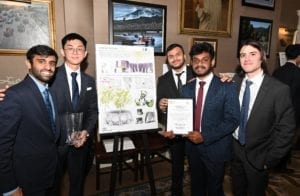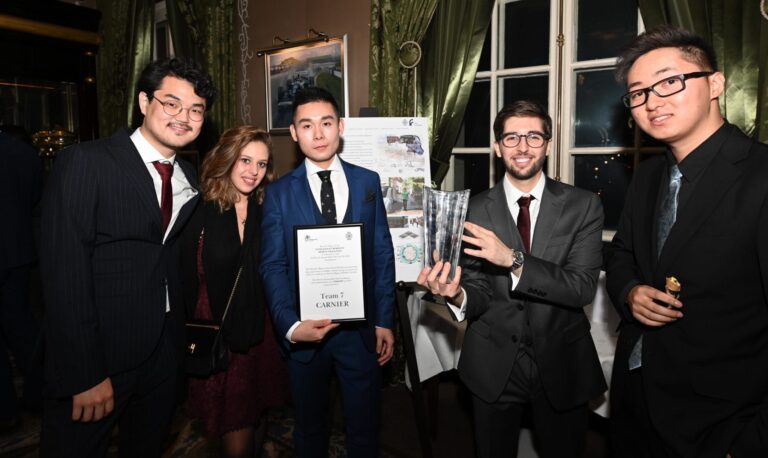The Royal Automobile Club (RAC) kicked off London Motor Week with 35 Royal College of Art (RCA) students showcasing a number of different rural mobility solutions to judges.
The post-graduate art and design students from RCA’s Intelligent Mobility MA programme were tasked with designing methods of transportation for the year 2030 and beyond for commuters living in rural areas.
Competition judges included RAC Foundation director Steve Gooding and Chris Thorpe, who heads up RCA’s Intelligent Mobility MA programme.
In order to help the students understand the difficulties that rural living can present for residents, not only in terms of limited transport links but also to their personal health and wellbeing, students became familiar with the rural market town of Wadhurst in East Sussex.
Based on their findings they were tasked with designing a vehicle or mobility system to help people be mobile in a rural environment.

The eight teams of students that accepted the challenge listened to experts and talked to members of the public that face these challenges with their current transport options.
They created and recorded the entire design process through to their design solution whilst making use of advances in technology and materials, including autonomy and artificial intelligence.
The teams presented their design concepts to a panel of judges at a special awards evening held at the RAC’s Pall Mall clubhouse.
The Insight Award was awarded to Project Carnier comprising students Domenico Perna, Marie Torrens, Zheming Zhang, Whenhao Zhang and Seok-woo Choe.
Project Carnier is a multi-functional vehicle designed to help farmers to sell their products. It can be used as personal transportation and converts quickly into a pop-up shop enabling farmers to retail at markets. The vehicle can also be used autonomously to deliver fresh or unwanted food within the community.
The vehicle design uses locally sourced materials for the interior and exterior including wood and textiles. Speaking of the design, Chris Thorpe said: “The Insight winners addressed critical rural needs and used mobility to connect with social aspects of the community providing a solution for cohesion. The autonomous vehicle delivered was visionary in its design.”
The Style Award was awarded to Project SOHO, whose students Abhidnya Kothavade, Dinesh Raman, Joseph Zammit, Xiao Yang and Sharon Ramalingam coined the design solution Carchitecture – a smart mobility infrastructure that uses dormant vehicles to create temporary shared multi-purpose spaces on demand.
Upon presenting the award, Thorpe said: “The team provided an architecturally design-led concept that worked aesthetically and sympathetically with the village environment, which was over and above its mobility function.”





